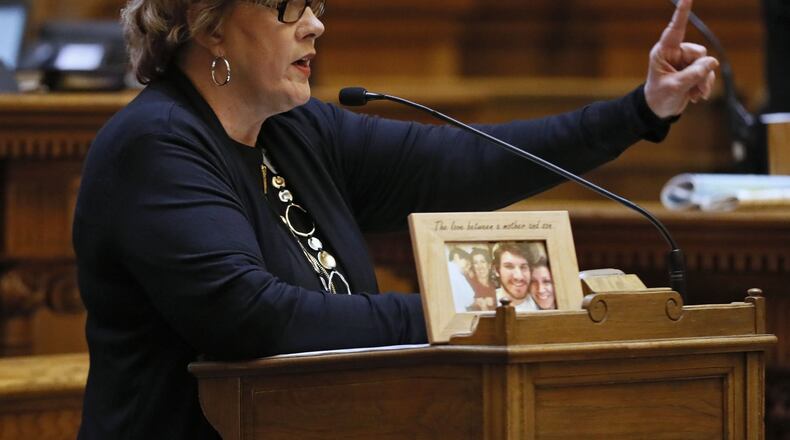A pair of bills aimed at gaining control over Georgia's opioid crisis cleared the state Senate on Wednesday with almost no opposition, though sponsors of the legislation said they expect to see some pushback in the House.
One proposal, Senate Bill 357, would create a Health Coordination and Innovation Council composed of health agency heads from across the state, as well as a director of health care policy and strategic planning who would report directly to the governor.
Lt. Gov. Casey Cagle, who has championed both bills, said he hopes the council will find ways to decrease costs to families who have loved ones dealing with opioid addiction.
“This really does afford us to be able to create the kind of health care coverage that Georgia’s citizens need at a price at which they can afford,” said Cagle, who is running for governor.
The other, Senate Bill 352, would create a director of substance abuse, addiction and related disorders, and combat "patient brokering" where unscrupulous rehabilitation centers get paid for taking and keeping patients rather than helping them get well.
SB 352 passed the Senate unanimously. Only one person, state Sen. Michael Williams, R-Cumming, who is also running for governor, voted against SB 357.
The bills, sponsored by state Sen. Renee Unterman, R-Buford, and state Sen. Dean Burke, R-Bainbridge, respectively, are the result of a 2016 study committee that traveled across the state, giving lawmakers a chance to hear from people affected by opioid abuse.
“These (solutions) came and came and came from the 10 million Georgians who are demanding action, who are saying ‘yes we have barriers to access to care, yes we have problems with our loved ones dying,’ ” Unterman said.
She said that more than 1,000 Georgians died from opioid overdoses in 2017.
Neil Campbell, the executive director of the Georgia Council on Substance Abuse, said her organization supports the legislation because it is bringing attention to the issue of addiction. Still, she said, she hopes the Legislature finds a way to put some money in the budget to combat substance abuse.
“We think any bill should go further and provide some funding for the people on the ground,” Campbell said, adding that only 1 in 10 people who need treatment is able to get help. “What other preventable, treatable chronic health condition do you know of where people can’t get services?” she said.
That was the case for Laurisa Barthen, whose abuse of pain pills beginning at 16 led her to overdose on heroin when she was 26. Barthen, who now works as the outreach coordinator at the Georgia Council for Substance Abuse, said she had to wait four months to get into a detox facility to get treatment.
Barthen said she has been in recovery for more than three years.
“I needed help to detox, but there were no beds,” she said. “There are many people who die waiting.”
Never miss a minute of what's happening in Georgia Politics. Subscribe to PoliticallyGeorgia.com.
About the Author
Keep Reading
The Latest
Featured




